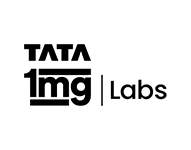

Vital Health Package near me in New Delhi
Understanding Vital Health Package in New Delhi
What is Vital Health Package in New Delhi?
A Vital health package is tailored to identify the health risks early so that preventive steps can be taken in advance, as timely screening can help to avoid illness and ensure overall good health. This package offers a kidney function test with electrolytes and a total cholesterol test. These tests limit the risk of complications arising due to impaired kidney function or deranged cholesterol levels. This package helps in the thorough evaluation of the overall health status of your body.
What does Vital Health Package measure?
Contains 7 tests
Cholesterol - Total
Cholesterol is essential for life, as it is required by the body to work properly. It plays a role in the formation of cell membranes in all organs and tissues in the body. It is associated with the formation of hormones which are important for development, growth, and reproduction. It forms bile acids, which help to absorb nutrients from food.
In the blood, a small amount of cholesterol circulates in the form of lipoproteins which contains protein, cholesterol, triglyceride, and phospholipid molecules. These are classified according to their density into HDL (high-density lipoproteins), LDL (low-density lipoproteins), and VLDL (very low-density lipoproteins). HDL cholesterol is also known as good cholesterol, as it carries excess cholesterol away for disposal while LDL cholesterol is also known as bad cholesterol, as it deposits cholesterol in tissues and organs.
It is important to maintain and monitor the levels of cholesterol for a healthy lifestyle. The source of cholesterol is diet as well. If a person is taking too much of cholesterol-rich foods, it can cause a rise in levels of cholesterol in the blood. The amount of cholesterol which is not required by the body starts to deposit in the form of plaques on the walls of blood vessels. These plaques can narrow or block the blood vessels opening which can lead to the hardening of arteries known as atherosclerosis. Also, with an increase in cholesterol levels, there is an increased risk of various conditions such as heart disease and stroke.
Know more about Cholesterol - Total

Kidney Function Test with Electrolytes
This is a test panel done to evaluate the kidney functions. It contains a group of tests integrated to collectively analyze any malfunction related to the kidney.
The kidneys are a pair of bean-shaped organs located on either side of the spinal column in the abdomen towards the back. The kidneys perform a number of important functions. The most important of these is that they filter the blood and separate the waste products generated out of regular metabolic activities of the body, primarily urea. Following the separation, the kidneys excrete the waste products out of the body through urine. They help in maintaining the normal pH level and water balance of the body. The kidneys also play essential roles in the synthesis of Vitamin D and Red Blood Cells (RBCs).
The Kidney Function Test includes the following tests to monitor kidney function:
· Blood Urea Nitrogen (BUN)/ Urea:
Blood Urea Nitrogen is a test to measure the amount of urea nitrogen present in the blood. Urea is a nitrogenous by-product formed by the metabolism of protein, and its level in blood serves as an indication of the amount of nitrogen present in blood as urea. In simpler terms, BUN is the measure of the amount of nitrogen present in blood in the form of urea. High BUN levels in the blood can be caused as a result of kidney diseases, dehydration and obstruction in the urinary tract due to kidney stones, prostate gland enlargement, etc.
Urea test measures the level of urea in the blood. Urea is a final waste product formed from the breakdown of proteins. Urea is filtered out of the blood by the kidneys to excrete excess nitrogen present in the blood through urine. Excess of urea in blood is called uremia and can be caused by a number of conditions including kidney diseases.
· Uric Acid:
This test measures the level of uric acid in the blood. Uric acid is a waste product formed from the breakdown of purines, which are essential building blocks of DNA. It is also produced by the metabolism of proteinaceous food, especially red meat. Uric acid is excreted from the body by the kidneys through urine and a small portion through stool. Although indirectly but uric acid test helps in estimating the proper functioning of the kidneys, .
The presence of excess amounts of uric acid in the blood is called hyperuricemia. This accumulation of uric acid crystals in the synovial fluid between joints lead to the formation of gouts. Hyperuricemia also causes the formation of hard lumps of uric acid crystals called tophi under the skin and at the top of the ears. Uric acid crystals can also accumulate in the kidneys and cause kidney stones.
· Creatinine:
This test measures the level of Creatinine in blood. Creatinine is a waste product formed from the normal breakdown of muscles in the body. Creatinine is almost completely excreted by the kidneys, so their levels in the blood serve as an indication of improper kidney function.
The levels of creatinine in the blood can rise due to decreased elimination from the kidneys as well as due to increased creatinine production by muscular breakdown, eating cooked meat, protein supplements, etc.
· BUN/Creatinine Ratio:
BUN/Creatinine Ratio compares the levels of nitrogen as urea in the blood to the levels of creatinine in the blood. This ratio serves as a more accurate representation of kidney function. An increase in the ratio can be seen in case of dehydration while creatinine levels remain the same. Low BUN to creatinine ratio can be caused due to a low protein diet, liver cirrhosis, rhabdomyolysis (muscle disease), syndrome of inappropriate antidiuretic hormone secretion (SIADH) as well as during pregnancy.
Electrolytes: The serum electrolyte test measures the following electrolytes:
Sodium (Na+)
Potassium (K+)
Chloride (Cl-)
Electrolytes play an important role in a number of body functions like metabolism, neuromuscular functioning, maintaining hydration, and pH (acid-base balance). Electrolytes also help in the entry of nutrients into the cells and removal of waste products from the cells. Electrolytes carry an electrical charge which can be either negative or positive and exist as dissolved salts in blood and body tissues. The Serum Electrolyte test measures the following important electrolytes:
Sodium (Na+)
Sodium is an essential body electrolyte which, along with potassium, chloride, bicarbonate, etc.helps to maintain the normal fluid and pH balance of the body. It is also vital for cellular metabolism, and in the activity of nerves and muscles and transmission of impulses between them. Sodium is present in all the body fluids. The highest concentration of sodium is found in blood and extracellular fluid.
Sodium is supplied to the body principally through dietary salt (sodium chloride or NaCl), and a small portion of sodium is absorbed through other food items. The required portion is absorbed by the body and the remaining is excreted by the kidneys through urine. The body maintains a very narrow range of sodium concentration by three mechanisms:
· Secretion of hormones natriuretic peptides and aldosterone to control sodium elimination through urine
· Secretion of antidiuretic hormone (ADH), also called Vasopressin, to control the volume of water eliminated through urine
· Induction of thirst
Any disruption in the above-mentioned mechanisms gives rise to an imbalance in the concentration of sodium in the blood to produce Hyponatremia (low blood sodium concentration), or Hypernatremia (high blood sodium concentration). Both these conditions produce a number of symptoms and may even lead to death.
Potassium (K+)
Potassium is one of the essential body electrolytes along with sodium, chloride, bicarbonate, etc. As an electrolyte, potassium helps to regulate the amount of fluids present in the body and to maintain a correct pH balance. It performs a vital role in cellular metabolism and transport of nutrients and waste products in and out of cells. It is also essential in the transmission of nerve impulses to muscles and muscle activity.
Sufficient amount of potassium required by the body is absorbed from dietary sources, and the remaining unabsorbed potassium is excreted by the kidneys. The hormone called aldosterone maintains the body potassium level within a small normal range. Aldosterone acts on the nephrons present in the kidneys and activates a sodium-potassium pump which helps the body to reabsorb sodium and excrete potassium. This helps to maintain the potassium concentration in the blood within its normal range. Deviation of potassium concentration from its normal range gives rise to Hyperkalemia (high potassium level in blood), or Hypokalemia (low potassium level in blood). Both these conditions may produce a number of symptoms, and may even be fatal if not controlled.
Chloride (Cl-)
Chloride is an essential mineral which acts as an electrolyte similar to potassium, sodium, bicarbonate, etc. It helps to maintain the normal fluid and electrolyte balance in the body. It also acts as a buffer to help maintain the pH balance of the body. It also plays an essential role in metabolism by producing hydrochloric acid (HCl) in the stomach for digestion. The highest concentration of chloride is found in blood and extracellular fluid (fluid present outside the cells).
Most of the chloride is supplied to the body through dietary salt (sodium chloride or NaCl), and a small portion is absorbed through other food items. The required portion is absorbed by the body and the remaining is excreted by the kidneys through urine. The concentration of chloride in blood is maintained within a very narrow range by the body. Its increase or decrease is directly correlated with the sodium levels.
Know more about Kidney Function Test with Electrolytes
This further contains
- Creatinine
- Potassium
- Uric Acid
- Chloride
- Sodium
- Blood Urea Nitrogen (BUN)
Book a Vital Health Package test at home near me





Other tests










